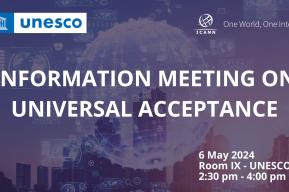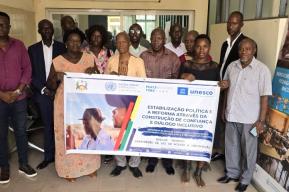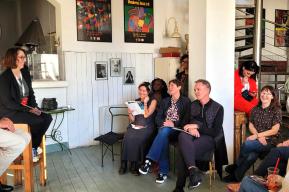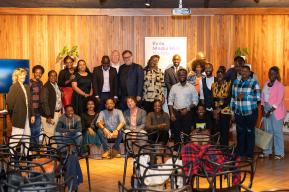News
UNESCO launches new resources for Member States to strengthen Universal Periodic Review recommendations
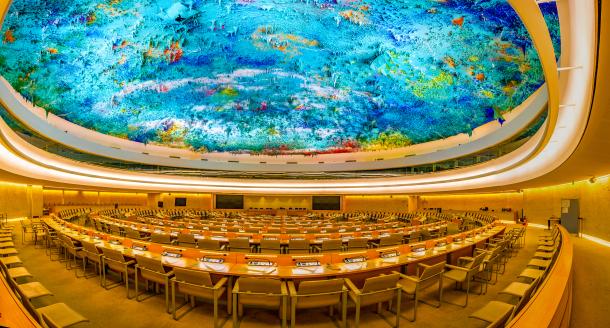
The guidance note, produced by UNESCO and in line with its work on freedom of expression, safety of journalists and access to information, provides model text and background motivation for nine recommendations across such fields. They include: reviewing overly-broad legal terminology; setting up or strengthening institutional mechanisms for safety of journalists; special attention to protecting women journalists; and adopting or strengthening access to information laws/policies and commitments to ensure inclusivity for marginalized groups.
On the occasion of the World Press Freedom Day 2022, H.E Abdulla Shahid, President of the United Nations General Assembly, H.E Santiago Irazabal Mourão, President of the General Conference of UNESCO and H.E Federico Villegas, President of the Human Rights Council issued for the first time a joint statement on the safety of journalists. In that occasion, they reminded of the importance of information for democracy, the promotion and protection of human rights, fighting corruption, sustainable development and preserving international peace and security. They further stressed the importance of ensuring journalists and media workers can work freely, independently and safely, without hindrances, threats, or violent reprisals.
The fourth cycle of the Universal Periodic Review is an opportunity to reflect on the developments during the previous reviews, to renew efforts towards enhanced implementation of recommendations and eventually build a free and enabling environment where citizens and media workers alike can thrive.
The UPR of the UN’s Human Rights Council assesses each of the 193 UN Member States on their human rights performance. Informing the process are reports submitted by Member States, civil society and UN agencies, including UNESCO.
The involvement of all stakeholders in the UPR process from the outset increases the potential recommendations being implemented in the country. For UNESCO, enhancing their capacities to do so is essential to ensure the promotion and protection of freedom of expression at country level, which is conducive to a vibrant civic space.
The model wording in the note will also assist UN Country Teams, National Human Rights institutions (NHRIs) and civil society in formulating their UPR submissions and their follow up to recommendations that are accepted by the country concerned.
The guidance note also unpacks the strong links between the UPR process and the SDG monitoring and reporting.
As we embark on the last decade to achieve the Sustainable Development Goals of the 2030 Agenda, we call on Member States, the UN system, regional bodies, civil society, the judiciary and all concerned actors to join forces to strengthen freedom of expression and the safety of journalists.
The note is part of UNESCO’s work to promote freedom of expression through the UPR. UNESCO has produced guidelines for UN Country Teams, National Human Rights Institutions, Information Commissioners, Civil Society Organizations and the soon to be launched Guidelines for journalists, all available in the six UN languages.
This guidance note for Member States was produced through funding from UNESCO’s Multi-Donor Programme on freedom of expression and safety of journalists.
Find out more about UNESCO's work on the Universal Periodic Review and Freedom of Expression here.
About the Multi-Donor Programme for Freedom of Expression and Safety of Journalists (MDP)
The MDP serves to further strengthen UNESCO work at a global, regional, and national levels, by channeling funds towards emerging priorities and the most pressing needs to achieve its mandate on freedom of expression. It enables UNESCO Communication and Information Sector to address complex issues through the design and implementation of holistic medium and long-term interventions at national, regional and global levels. The clear advantage of this mechanism is that it allows UNESCO and its partners to achieve greater impact and sustainability, whilst reducing fragmentation of activities in the same field.
Protect journalists and freedom of expression, visit this page.


